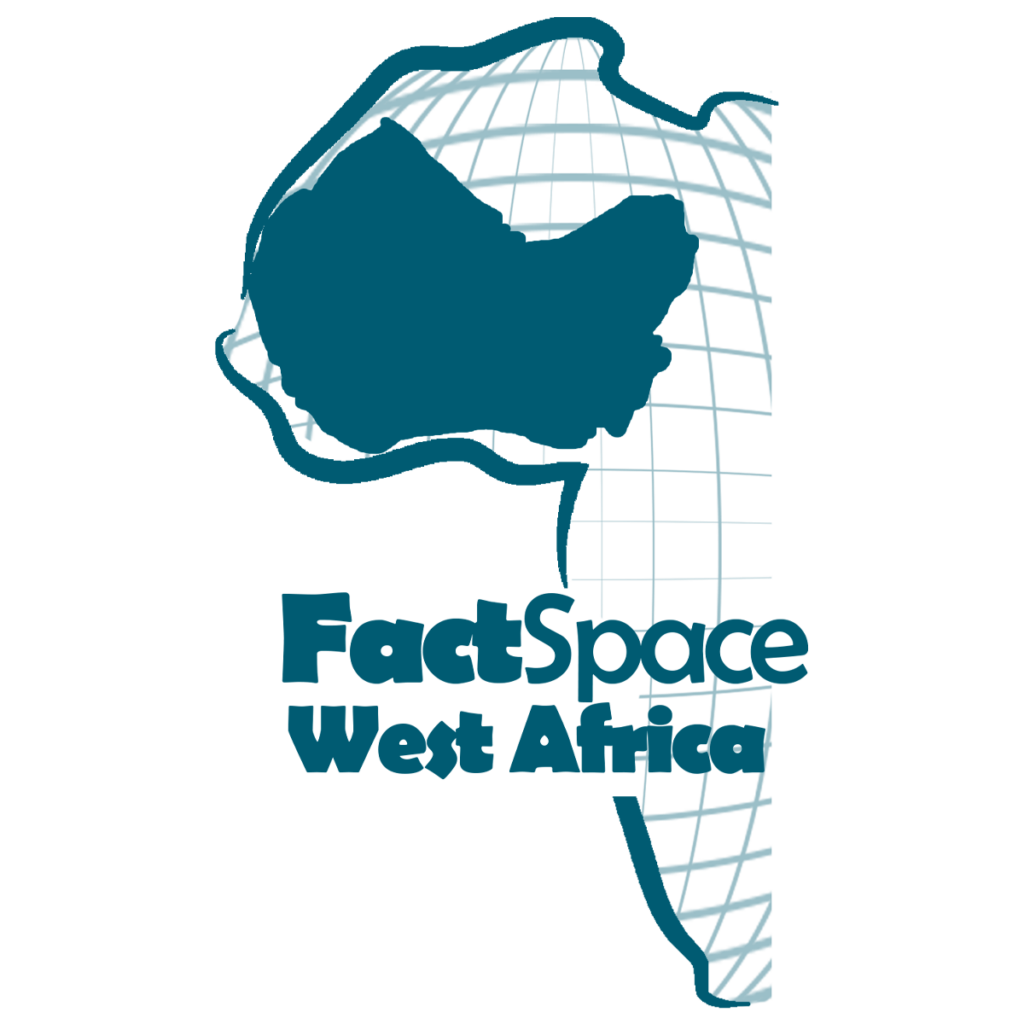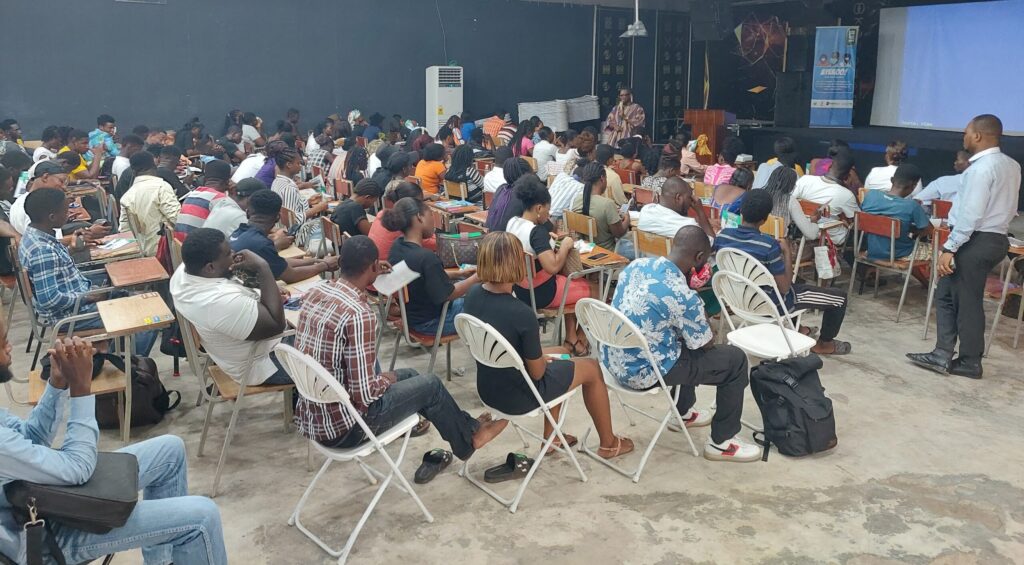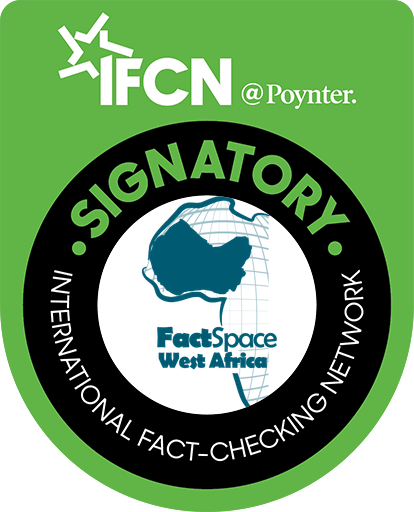FactspaceWA, Accra 21.02.2024 – FactSpace West Africa held a successful training and activation session at GH Media School in the Greater Accra Region to promote digital literacy and introduce students to the Cranky Uncle Vaccine game and other tools.
The Director of FactSpace West Africa, Rabiu Alhassan, gave a step-by-step approach to downloading the Cranky Uncle Vaccine Game app to empower students with the necessary skills to combat misinformation.
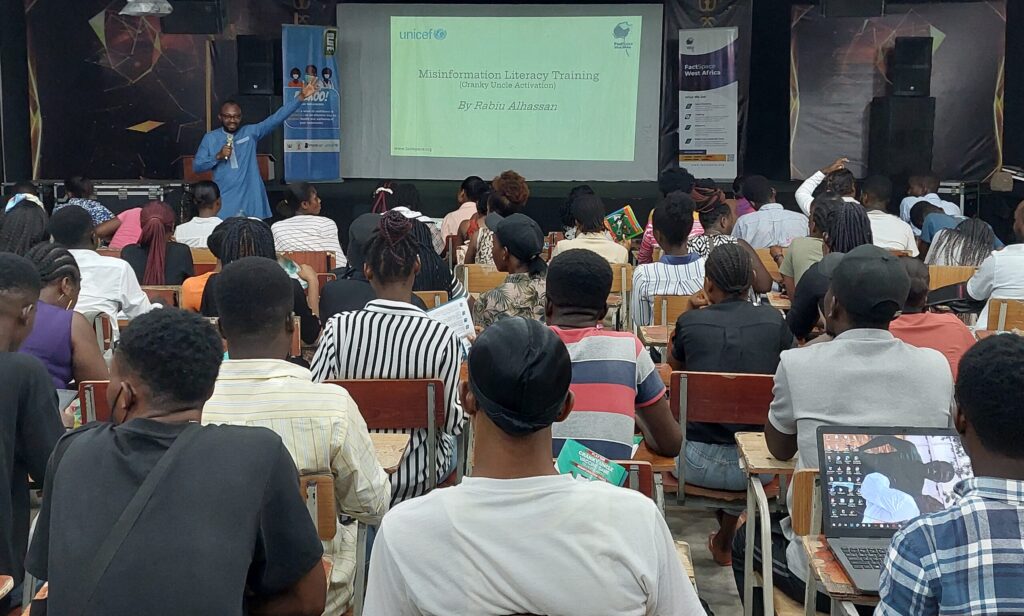
Fig 1 – Rabiu Alhassan making a presentation during the session
The training session was started by Karl Ofori, a GH Media School lecturer, who expressed the honour of hosting the FactSpace team.
Rabiu provided a brief background on mis- and disinformation management, emphasizing the Cranky Uncle Vaccine app as a tool for managing health misinformation.
With close to 300 students from various departments, including public relations, journalism, and communication studies, the event successfully promoted digital literacy and ways of combating misinformation among young adults. Many students were eager to try out the application and provide feedback on its effectiveness.
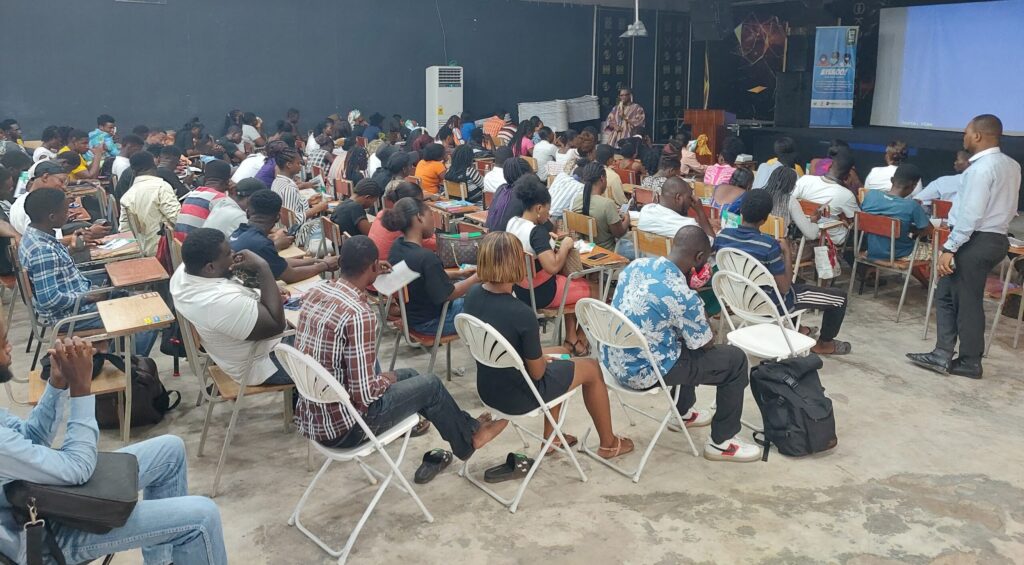
Fig 2 – A shot from the session
The session was closed by Prof Cliff Ladzekpo, the dean of students, who appreciated the exposure provided by the app, which was a collaboration between FactSpace, UNICEF and the Ghana Health Service (GHS).
He expressed hope for more training sessions to empower students with the necessary skills to combat misinformation, particularly in the healthcare industry.
About the app
The Cranky Uncle Vaccine app, was designed and deployed in East and West Africa, incorporating elements such as quizzes, challenges, and rewards to engage participants in an immersive learning experience.
Through co-design workshops with health workers and young people, the game content was carefully curated to reflect the cultural context in Ghana. 1,000 young participants were selected from institutions in Ghana and furnished with the app for testing.
The app aims to explore the potential impact of gamification to foster community resilience, promote fact-checking behaviors, and reduce the amplification of misinformation through social networks.
By engaging users in immersive and enjoyable experiences, gamification not only empowers individuals to distinguish between credible and false information but also cultivates a sense of collective responsibility in curbing the spread of misinformation.
By Julius Kofi Satsi
